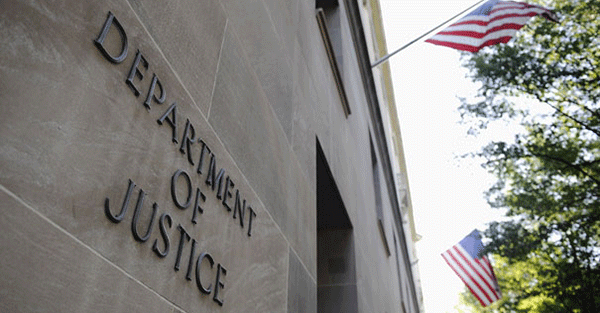Det at have nogle kontanter på hånden er altid en fornuftig strategi, specielt i dag, hvor flere og flere bankdepositum kryber ind i negativ territorie, hvilket betyder at du skal betale banken for det privilegie at spille med dine penge.
Du fortæller kassedamen at du ønsker at hæve $5000 fra din konto. Hun tøver lidt nervøst og vil vide hvorfor.
Du prøver høfligt at fortælle hende at det ikke vedrører banken da det er dine penge.
Kassedamen forsvinder i nogle minutter og lader dig vente.
Når hun kommer tilbage fortælller hun dig at du kan få dine penge om nogle få dage, da de for øjeblikket ikke har det for hånden.
Lidt irriteret på grund af dette besvær, går du hjem.
Men idet du kører ind i carporten venter der sig en uventet overraskelse for dig: to politibetjente vil gerne have et ord med dig angående dit ønske om at hæve penge tidligere...
Hvis dette lyder som kommende helt ud fra landet af, så tænk igen. For det kunne meget vel blive en virkelig for landet af de frie, hvis justitsministeriet får sin vilje.
Tidligere på ugen, talte en senior embedsmand fra justitsministeriet med en gruppe bankmænd om behovet for at de forråder deres kunder til politiet.
Hvad en masse folk ikke realiserer er at bankerne allerede er ubetalte spioner for staten.
Kommentar: Vi undskylder at resten af denne artikel er på engelsk, men i vores bestræbelser på at få så meget information og viden ud til jer, så må vi fra tid til anden ty til at poste artikler på engelsk. Vi er kun en lille frivillig stab, så hvis nogen har lyst til at hjælpe med at oversætte, så hører vi gerne fra jer, email os på sott_da@sott.net
What a lot of people don't realize is that banks are already unpaid government spies.
Federal regulations in the Land of the Free REQUIRE banks to file 'suspicious activity reports' or SARs on their customers. And it's not optional.
Banks have minimum quotas of SARs they need to fill out and submit to the federal government.
If they don't file enough SARs, they can be fined. They can lose their banking charter. And yes, bank executives and directors can even be imprisoned for noncompliance.
This is the nature of the financial system in the Land of the Free.
And chances are, your banker has filled one out on you - they submitted 1.6 MILLION SARs in 2013 alone.
But now the Justice Department is saying that SARs aren't enough.
Now, whenever banks suspect something 'suspicious' is going on, they want them to pick up the phone and call the cops:
"[W]e encourage those institutions to consider whether to take more action: specifically, to alert law enforcement authorities about the problem, who may be able to seize the funds, initiate an investigation, or take other proactive steps."So what exactly constitutes 'suspicious activity'? Basically anything.
According to the handbook for the Federal Financial Institution Examination Council, banks are required to file a SAR with respect to:
"Transactions conducted or attempted by, at, or through the bank (or an affiliate) and aggregating $5,000 or more..."It's utterly obscene. According to the Justice Department, going to the bank and withdrawing $5,000 should potentially prompt a banker to rat you out to the police.
There's something else about this that I want to point out, though: this may be a very early form of capital controls in the Land of the Free.




Kommentar: Langsomt men sikkert, så bliver vores rettigheder mere og mere indskrænkede. Så hold øjnene åbne!